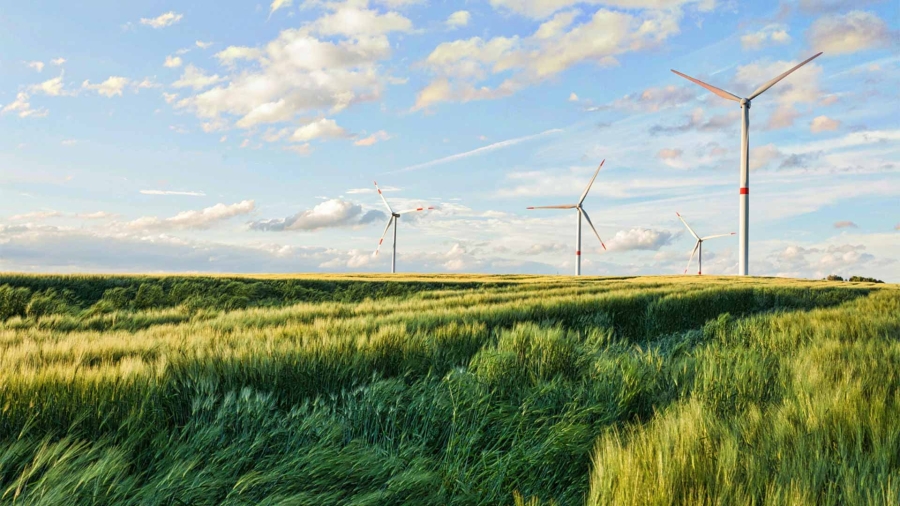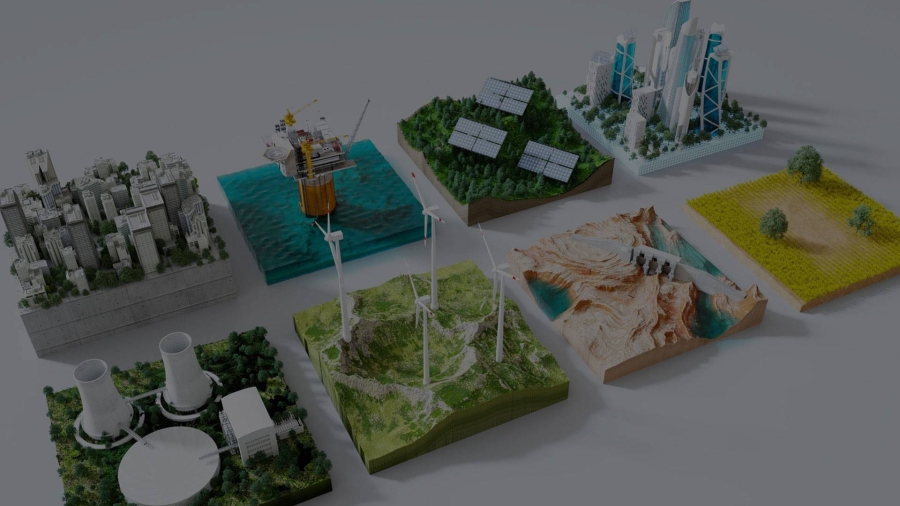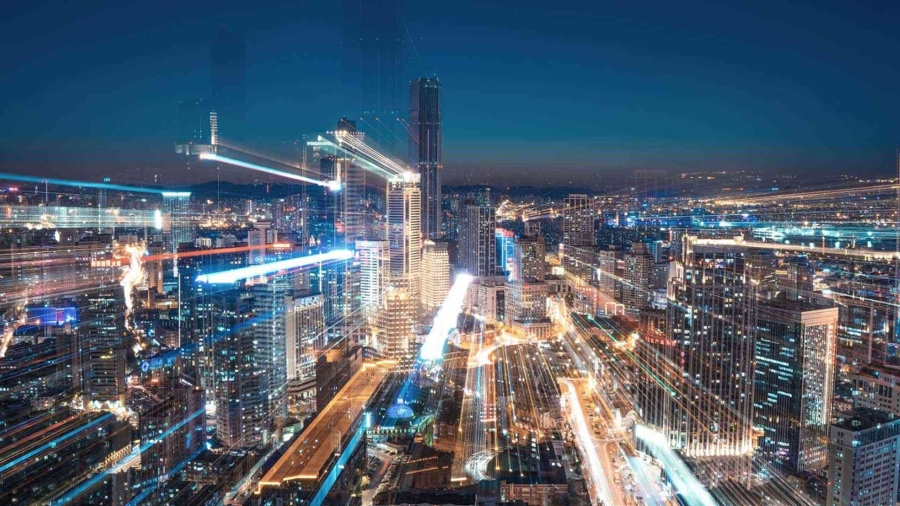The following explores two future perspectives for the decarbonization of the Middle East by 2060, scientifically accounting for multiple uncertain variables which directly alter the region’s future energy demand.
Net Zero Scenario: This scenario takes stock of current commitments from several countries of the Gulf region to reach a net zero economy by mid-century. It explores the role that transformations on the “demand side” of the energy system (energy services) can play in such a pathway.
New Future Scenario: This scenario assumes a more rapid development of new energy services than traditionally anticipated, stemming from both faster technology development and supportive policymaking, i.e., a more radical transformation of the region’s economy, and its impact on the energy system.
Key findings:
- As the economy of the region modernizes, it also decarbonizes-resulting in an accelerated decoupling between emissions and economic wealth.
- Electricity represents 40-55% of final energy demand in both scenarios
- Policies driven by governments in the region are more supportive of innovations captured in “New Future” which enables a more rapid scaling up of new services and technology.
- Around 2/3rd of final energy demand comes from 3 sectors of economic activity: buildings, road mobility, and manufacturing. Clean hydrogen, nuclear energy, and water infrastructure also have a heavy influence on energy demand; each will be additive to energy production as technologies develop.
- Uncertainty in manufacturing and road mobility plays a significant role in reaching a net zero economy by 2060.
Why this matters:
After decades of research, the global scientific community considers that currently observed global warming is man-made. The pace of change is unprecedented with impacts likely to rapidly materialize. The window of time to transform and secure our economy is steadily closing.
The IPCC also demonstrated that net emissions of carbon dioxide must be zeroed by mid-century (with significant abatement on other greenhouse gases), while they also must be reduced by 30-50 percent by 2030, for the world to remain on a trajectory consistent with a long-term 1.5-degree global warming ambition (SchneiderElectric, 2021a)
Schneider Electric
Vincent Petit, SVP Climate and Energy Transition Research, head of the Schneider ElectricTM Sustainability Research Institute
Vincent Minier, VP Energy Transition Research, Schneider ElectricTM Sustainability Research Institute
Ayman Ismail, VP Government Relations & Strategy, United Arab Emirates, Schneider Electric
Enerdata
Jacques Despres, Project Manager, Global Energy Forecasting, Enerdata
Quentin Bchini, Project Manager, Global Energy Forecasting, Enerdata
Magali Mellon, Project Specialist, Global Energy Forecasting, Enerdata













